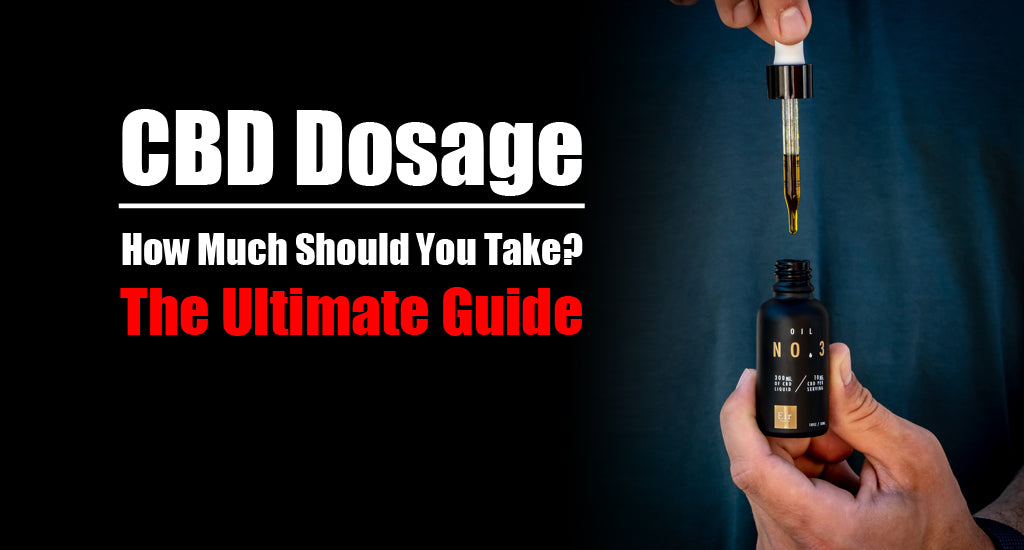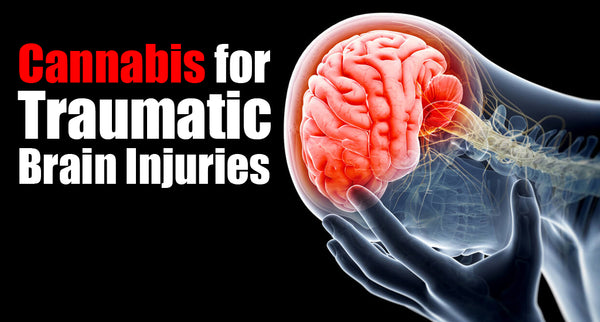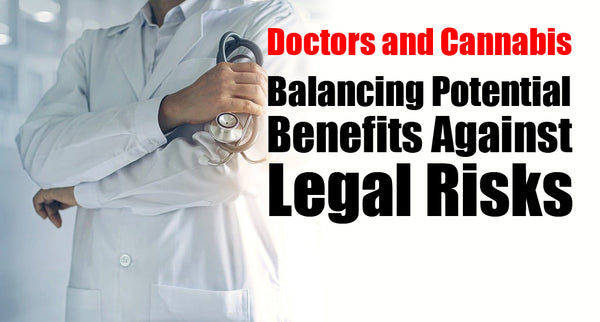
CBD Dosage: How Much Should You Take? The Ultimate Guide
Cannabidiol or CBD is available in many forms, such as oils, gummy bears, tablets, and creams, and so on. The use of CBD is increasing rapidly as we also get to see an expanding body of research around it. There is a growing reform of people using cannabis to relieve anxiety, pain, insomnia, arthritis, menopause symptoms.
Cannabidiol is one of the 100 plus active compounds in the cannabis plant, which is recognized for its anti-inflammatory properties and is rich in Omega-3 and Omega-6 fatty acids and antioxidants. Here, an important disclaimer is that CBD is not similar to THC (tetrahydrocannabinol), the compound responsible for euphoric effects.
Benefits of CBD
CBD, short for cannabidiol, has emerged as a subject of significant interest in recent years due to its potential health benefits. While cannabis has been used as a medicinal plant for centuries, the focus on CBD's therapeutic properties has led to a surge in research and product development.
One of the most noteworthy aspects of CBD is its positive impact on mental health. Research indicates that CBD may help alleviate stress, anxiety disorders, and depression, making it an attractive option for those seeking natural remedies for these conditions. CBD products, including popular choices like CBD oil tinctures, have become readily available in the market for individuals looking to manage mental stress and fatigue.
Moreover, CBD holds promise as a therapeutic agent for a range of physical conditions. The World Health Organization has suggested its potential in treating Alzheimer's disease, arthritis, inflammation, diabetes, pain, psychosis, cardiovascular disease, infection, multiple sclerosis, and nausea.
While ongoing research continues to uncover the full extent of CBD's benefits, its growing popularity and the expanding body of evidence suggest that it may play a crucial role in the future of holistic healthcare.
Legality and Research around Use of CBD
The legality and research surrounding the use of CBD have been topics of increasing interest and complexity in recent years. While CBD products have gained legal status in many states, the regulatory landscape remains inconsistent, leading to variations in legality and oversight.
The Food and Drug Administration (FDA) has limited control over most CBD products, resulting in significant variability in their quality, dosage accuracy, and safety. This lack of regulation makes it challenging for consumers to determine the optimal dosage for their needs, raising concerns about potential risks.
In terms of research, there is growing evidence suggesting various mental and physical health benefits of CBD. However, the body of research is still evolving, and more comprehensive studies are needed to fully understand its potential applications and potential side effects.
A notable 2019 review published in The Lancet Psychiatry highlighted some promising evidence supporting CBD's use for mental health issues such as insomnia, anxiety, and depression. However, it emphasized the need for further research to validate these findings and provide a more comprehensive understanding of CBD's role in healthcare.
In conclusion, while CBD's legal status varies, its regulatory environment remains uncertain. Research is ongoing, and while there are promising signs, more extensive studies are required to solidify its place as a viable treatment option for various health conditions.
How Does CBD Work?
CBD exerts its effects by interacting with the body's endocannabinoid system, a complex network of receptors and molecules that play a crucial role in maintaining balance and homeostasis.
Here's how CBD works:
-
Endocannabinoid System (ECS): The ECS comprises receptors, enzymes, and endocannabinoids naturally produced by our body. It plays a vital role in regulating various physiological processes, including mood, pain perception, immune function, and stress response.
-
Adenosine Receptors: CBD's primary mechanism of action is through the modulation of adenosine receptors. Adenosine is a neurotransmitter that promotes relaxation and helps regulate sleep. CBD binds to these receptors, influencing their activity.
-
Stress Response Regulation: CBD's interaction with adenosine receptors has a calming effect on the brain's stress responses. It helps prevent excessive activation of the hypothalamic-pituitary-adrenal axis (HPA), a complex system involved in stress responses.
-
Amygdala and Emotional Processing: When our brain perceives a threat or stressor, the amygdala, responsible for emotional processing, signals the hypothalamus, initiating a stress response cascade.
-
Adrenal Glands and Fight-or-Flight: In response to stress signals, the adrenal glands release adrenaline, which increases heart rate, redirects blood flow to vital organs, and enhances alertness and energy. This prepares the body for the "fight-or-flight" response.
CBD's interaction with adenosine receptors helps temper the stress response, reducing excessive anxiety and promoting a sense of calm. This mechanism contributes to its potential in managing stress-related conditions and promoting overall well-being.
Navigating CBD Dosage: Tailoring Your Cannabidiol Intake
-
Individualized Dosage: Determining the appropriate CBD dosage is a highly personalized process, influenced by factors such as age, weight, gender, and the specific condition being addressed. This individual variability underscores the importance of a tailored approach.
-
Start Small: To minimize the risk of adverse reactions and gauge your body's response, it is commonly recommended to commence with a small dose. For example, this could involve taking just one or two drops of an oral CBD formulation or a modest puff from a vaporizer.
Suggested Dosages for Specific Conditions
Research studies for have provided suggested dosage ranges for various health conditions. These include:
- Anxiety: Typically, a dosage range of 300 to 600 mg.
- Parkinson's Disease: Ranging from 75 to 300 mg per day.
- Poor Sleep: Around 25 mg per day.
- Type 2 Diabetes: Approximately 100 mg taken twice daily orally.
- Psychosis: Often within the range of 600 mg per day.
- Pain Related to Cancer: Dosages can vary from 50 to 600 mg per day.
- Bowel Disease: Generally, a daily dose of 10 mg.
- Personal Exploration: With these suggested dosages in mind, it's essential for users to take an active role in understanding their specific needs, conducting research, and embarking on a gradual, self-monitored dosage adjustment process. This empowers individuals to fine-tune their CBD intake to effectively address their unique requirements.
Armed with knowledge about suggested dosages, individuals can explore various ways to incorporate CBD into their wellness routines, tailoring its use to meet their specific health goals and preferences.
Exploring CBD Applications: Diverse Ways to Experience the Benefits
-
Capsules and Edibles: Capsules and CBD-infused edibles offer precise dosing, with CBD content clearly labeled per unit. They are a tasteless option, making them suitable for those averse to strong flavors. While their onset is slower, taking around an hour or more to kick in as they pass through the digestive system and liver, their effects can last for an extended period, typically ranging from 8 to 12 hours.
-
Tinctures and Sprays: Tinctures and sprays provide a faster way to experience the effects of CBD. Despite their earthy flavor, they are known for their quicker absorption, typically taking around 20 minutes to take effect. This rapid onset makes them a popular choice for those seeking more immediate relief.
- Topicals: For targeted relief from chronic pain or localized issues, CBD topicals, such as creams and lotions, offer a practical solution. They can be applied directly to the affected area, allowing for focused symptom management.
- Oil Form: CBD in oil form, often blended with a carrier oil like coconut oil, provides versatility. This form can be used in various ways, including as dietary supplements, lotions, salves, and even cosmetics. The choice depends on individual preferences and intended use.
Choosing the Right Form: Selecting the ideal CBD product depends on your specific goals. For general mood enhancement, dietary supplements may suffice. However, when targeting specific symptoms or conditions, opting for oils, capsules, or gummies can provide a more concentrated and tailored dosage. Ultimately, the choice of CBD product should align with your intended purpose, ensuring a personalized and effective wellness experience.
Probable Side Effects
While CBD is usually well-received, few might experience some side effects as well. Some of the most common side effects when taking CBD include:
-
Nausea, in some cases, occurs in a person who ingests CBD supplements. However, this also depends on how sensitive the person is to CBD and the amount they consume.
-
Dizziness and sedation are common side effects when the dosage is higher than one can handle, or the effects might be too strong if one takes CBD with other sedating medications.
-
Diarrhea is another potential side effect of CBD. This effect is generally caused by other ingredients in CBD items or the metabolism of the user. Hence, monitoring is recommended during CBD use.
-
Dry mouth is a side effect which is also known as cottonmouth. CBD can sometimes cause your mouth and eyes to feel dry, but it is more likely to occur with THC.
Conclusion
In summary, when embarking on a CBD regimen to alleviate either an acute or chronic condition, it's crucial to recognize that determining the appropriate dosage is a multifaceted process influenced by a range of variables. As such, finding the optimal CBD dosage may necessitate a patient and systematic approach, involving experimentation and occasional adjustments along the way.
The most recommended strategy involves commencing with a conservative and low dose of CBD. Starting low serves two primary purposes: it minimizes the potential for adverse reactions and allows individuals to gauge their body's response to the cannabinoid. As one proceeds, they can incrementally increase the dosage until they achieve the desired therapeutic effects.
This incremental approach, often referred to as "titration," permits individuals to find their unique "sweet spot" where they experience the maximum benefits of CBD without unnecessary excess. It's a personalized journey towards discovering the ideal dosage that aligns with individual needs, ultimately optimizing the efficacy of CBD for symptom relief and overall well-being.



